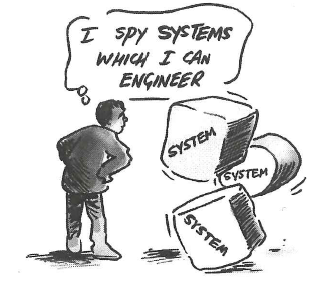1 Distinguishing and defining systems
Everyone is involved with things called systems – information systems, financial systems, ecological systems, computer systems, education systems; and to this list you can add many things which are often called systems by professionals in a particular field. For example, doctors talk of the nervous system in the body, therapists of the family system to which each of us belongs, engineers of fail-safe systems in a car or power station. In general, the word ‘system’ can be used in a number of ways and all these things called systems seem complicated and can often be seen to behave in unpredictable ways.
At first sight, a computer system and the body’s respiratory system don’t seem to have much in common, nor do the world financial system and an ecological system. On the other hand, each of them is called a system, so they must have something in common.

